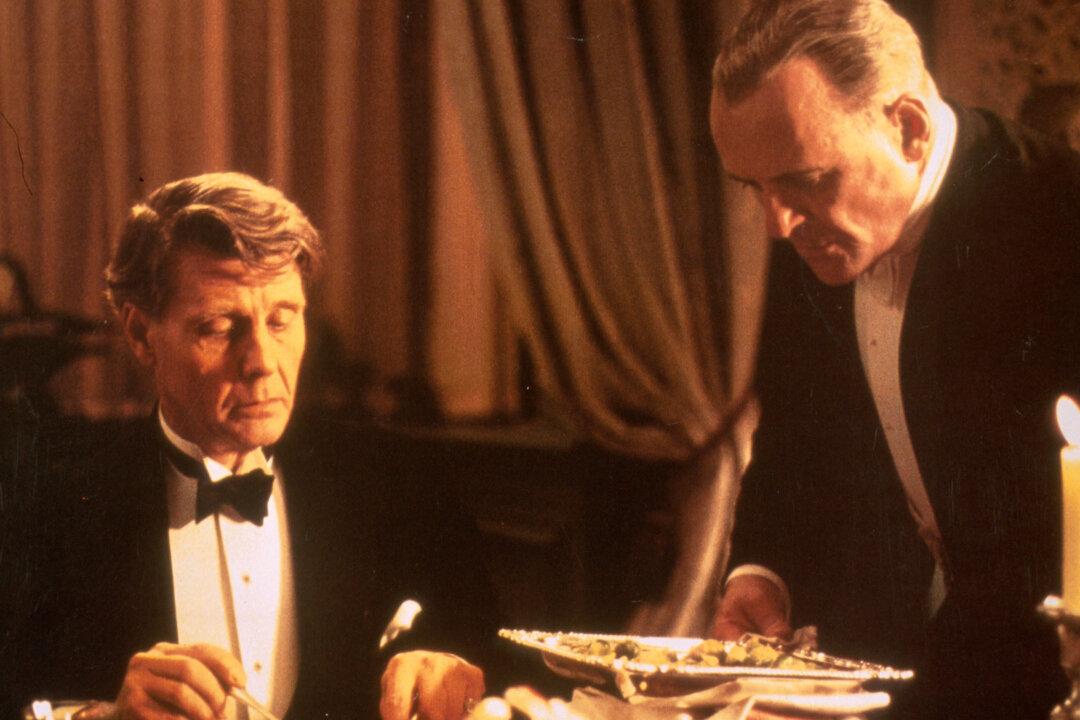PG | 2 h 14 min | Drama | 1993
At the British country house Darlington Hall, fastidious butler Mr. Stevens (Anthony Hopkins) serves his 1930s’ master, Lord Darlington (James Fox). Equally efficient but unfussy housekeeper Miss Kenton (Emma Thompson), fancies Stevens, but he’s cold to her. His identity, as butler, overpowers his identity as a man, a son, and a free-thinking citizen. Devastated, she leaves for better pay, and another potential partner, elsewhere.





